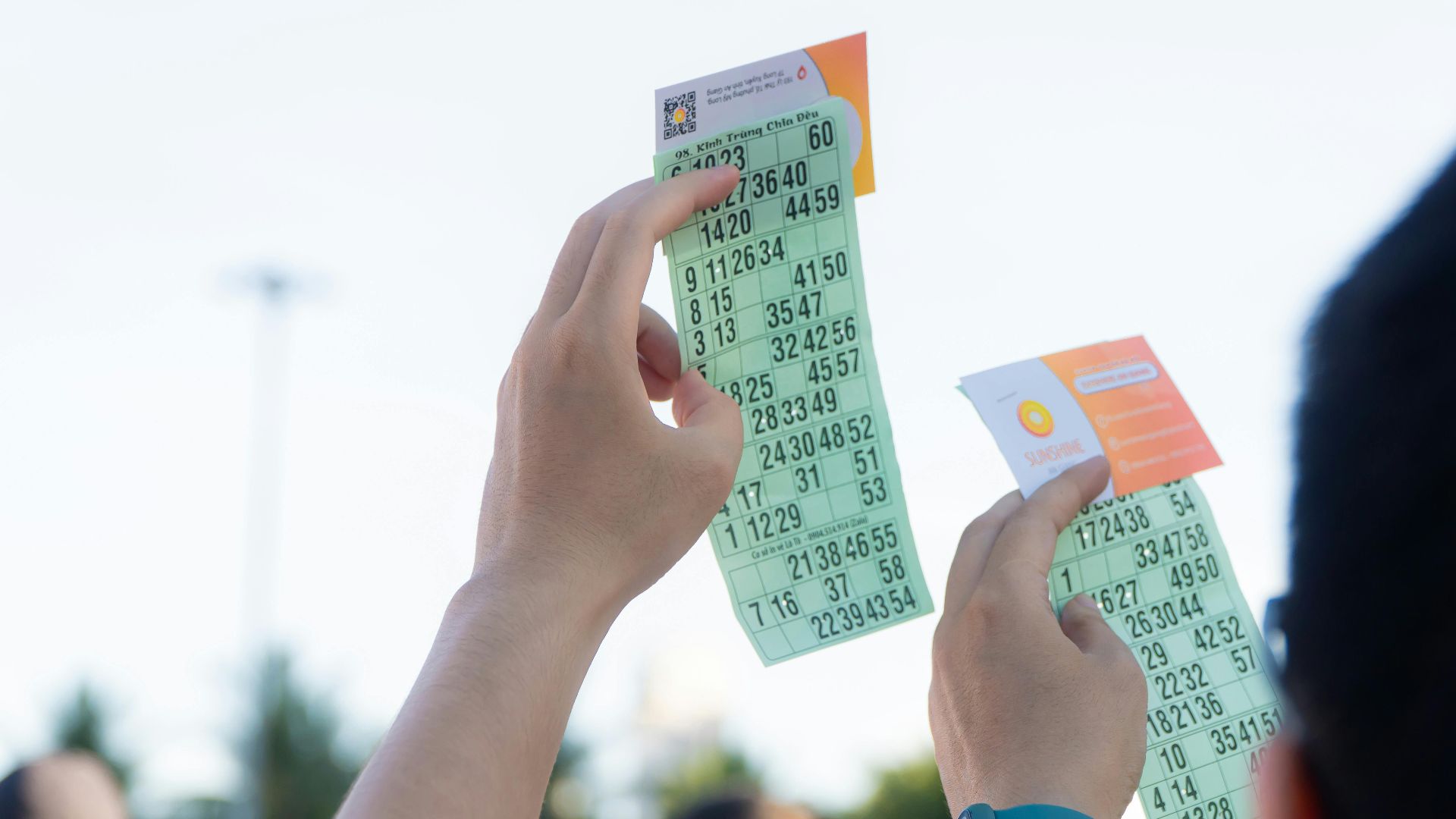Win or Lose?
Winning the lottery should feel like a dream—but if you’re in the middle of a divorce, it can turn into a legal, and very costly, nightmare. Whether your soon-to-be ex has any rights to that money depends on timing, state laws, and disclosure rules (and did we mention timing?). Here’s what some other real people have gone through—and what you need to know before you make a life-changing, and possibly very costly, mistake.

A California Man Won $1.3 Million—Then Lost It All in Divorce Court
In 1999, Denise Rossi won 1.3 million dollars in the California Lottery—and didn’t tell her husband. When he later found out during their divorce, the judge ruled that she’d violated state disclosure laws. Her punishment? She had to give every penny of her winnings to her ex-husband. California considers lottery winnings community property if won before the divorce is finalized.
In Michigan, a Man’s Lottery Win Was Split With His Ex
A Michigan man won an 80 million dollar Mega Millions jackpot while separated from his wife—but before the divorce was final. The court decided the ticket was “marital property,” meaning both parties shared ownership. His ex was awarded a portion of the winnings under Michigan’s equitable distribution rules, even though they were living apart at the time.
A New York Woman Tried to Hide Her Jackpot—And Paid the Price
In another case, a woman from New York attempted to secretly claim a 3 million dollar lottery prize while in divorce proceedings. Her husband discovered it during financial disclosure. The court ruled the winnings were marital assets, since the couple was still legally married when she bought the ticket. Attempting to conceal winnings not only cost her money—it nearly led to criminal charges for fraud.
Timing Is Everything
If you win the lottery before your divorce is finalized, that money will likely be treated as marital property—meaning your spouse may be entitled to a share. If the win occurs after the divorce decree is issued, it’s generally considered separate property. But even then, disclosure is required in most states if the case is still open.
You’re Legally Required to Disclose New Assets
In nearly every U.S. state, both spouses must fully disclose all assets during divorce proceedings—including lottery winnings. Hiding the money is considered fraud, and if discovered, the court can impose severe penalties, such as awarding the entire amount to the other spouse or even reopening the case.
Community Property vs. Equitable Distribution States
In community property states (like California, Texas, Arizona, and Washington), any asset acquired during the marriage is split 50/50. In equitable distribution states, courts divide assets fairly—but not necessarily equally. This can result in a split based on factors like income, contributions, and conduct during the marriage.
If You Win After Separation—but Before Divorce
This is the trickiest gray area. Some courts rule that physical separation is enough to make the winnings separate property; others say that until the divorce is legally final, it’s still shared. It all depends on state law and the date of separation recognized by the court.
Does It Matter When You Bought the Ticket?
Absolutely. Courts care about when the ticket was purchased—before, during, or after the divorce process began. That single detail can determine whether your soon-to-be ex has any claim at all. The timing, not just the payout date, is what judges look at most closely.
If You Bought the Ticket Before Filing for Divorce
Even if you were separated, any asset gained before the official divorce filing is usually treated as marital property. That means both spouses may have a legal right to a share—especially in community property states, where everything acquired during the marriage is split 50/50.
If You Bought the Ticket After Filing—but Before the Divorce Is Final
This is the legal gray zone. You’re still technically married until the decree is signed, so the court can consider the winnings part of the marital estate. Some states recognize a “date of separation”—if you’ve stopped living together and sharing finances, the court may rule the money is yours. But others will still split it.
If You Win Before the Divorce Is Final but Claim It After
Waiting to claim your lottery prize until after the divorce won’t protect you. Courts look at when you purchased the ticket and when the winning draw occurred, not when you cash it in. If the win happened before the divorce decree, it’s usually still marital property—even if you collect the money later. As one man in Illinois found out the hard way...
The Illinois Million-Dollar Mistake
A man claimed his 1 million dollar prize only after his divorce was finalized—thinking that made it his alone. The court disagreed. Because he bought the ticket and the winning numbers were drawn while he was still legally married, the judge ruled that his ex-wife was entitled to a share. Timing trumped the claim date.
Delaying the Claim Can Backfire
If you intentionally wait to claim your winnings to keep them hidden, courts can treat that as fraud or asset concealment. Judges can reopen divorce cases, redistribute assets, or even award the entire prize to your ex as punishment. Transparency always beats trying to outsmart the system.
What Happens If You Don’t Tell Your Ex (Or the Court)?
If you try to hide winnings, the consequences can be brutal. Judges have voided settlements, ordered full transfers of winnings to the other spouse, and even referred cases for criminal prosecution. Transparency isn’t optional—it’s required.
How Courts Verify Hidden Winnings
Courts can subpoena bank records, tax filings, lottery commissions, and even social media posts. Many state lotteries also make winners’ names public, so it’s nearly impossible to stay hidden. Once deception is discovered, the penalties are far worse than sharing fairly in the first place.
How to Protect Yourself If You Just Won
If you’re mid-divorce and suddenly hit the jackpot: Consult your attorney immediately. Don’t spend or transfer the money. Disclose it properly to the court. Avoid hiding funds in trusts or gifts—it will backfire.
Can You Keep It Secret from Your Ex?
Legally, no. Morally, maybe. But any attempt to “keep it quiet” can unravel fast. Financial institutions, tax records, and even social media can expose the win. Courts treat concealment as deception, which can invalidate your entire settlement.
When It Might Be Safe to Keep It
If your divorce has been finalized and all joint accounts, property, and obligations are settled, the money is yours. Once the final decree is signed, any future earnings—including lottery winnings—are generally considered separate property.
If You’re Only Separated—Don’t Assume You’re Safe
Even if you’ve been living apart for years, without a legal separation agreement or divorce decree, your spouse might still have a claim. Some states, like New Jersey, view “separated” couples as still married under property law until the court says otherwise.
Judges Can Use Discretion
Courts can divide winnings differently based on need, fairness, and timing. A spouse who contributed little financially might still receive a share if the marriage was long or if there’s demonstrated reliance. There’s no universal formula.
Big Wins Often Lead to Bigger Fights
Lottery windfalls have been known to delay or derail divorces entirely. Suddenly, one spouse wants to renegotiate terms or even contest filings. Lawyers often advise keeping calm, maintaining full transparency, and letting the court handle valuation.
Don’t Try to Outsmart the System
Hiding winnings through friends, shell companies, or “gift transfers” is risky. Courts can trace transactions and subpoena records. One California woman who transferred her winnings to a friend’s account was caught and ordered to pay double restitution.
Tax Implications Matter Too
Lottery winnings are taxable income—and the IRS doesn’t care about your marital drama. Whether you file jointly or separately, the win must be reported accurately. Failing to do so can create both civil and criminal issues.
You Can Negotiate a Buyout
If your spouse has a potential claim, your attorney might negotiate a buyout agreement—offering a lump sum or percentage to finalize the divorce quickly. This can help you avoid protracted litigation and preserve your privacy.
Real Talk: Honesty Pays Off
The cautionary tales all point to one truth—it’s almost always worse to hide it. Being transparent protects you legally and financially, even if it feels unfair in the moment.
 Priscilla Du Preez 🇨🇦, Unsplash
Priscilla Du Preez 🇨🇦, Unsplash
Bottom Line
If you win the lottery before your divorce is finalized, your spouse probably has some claim to the money. Trying to hide it can cost you everything. Tell your attorney, disclose it properly, and don’t make a bad situation worse.
You Might Also Like:
































